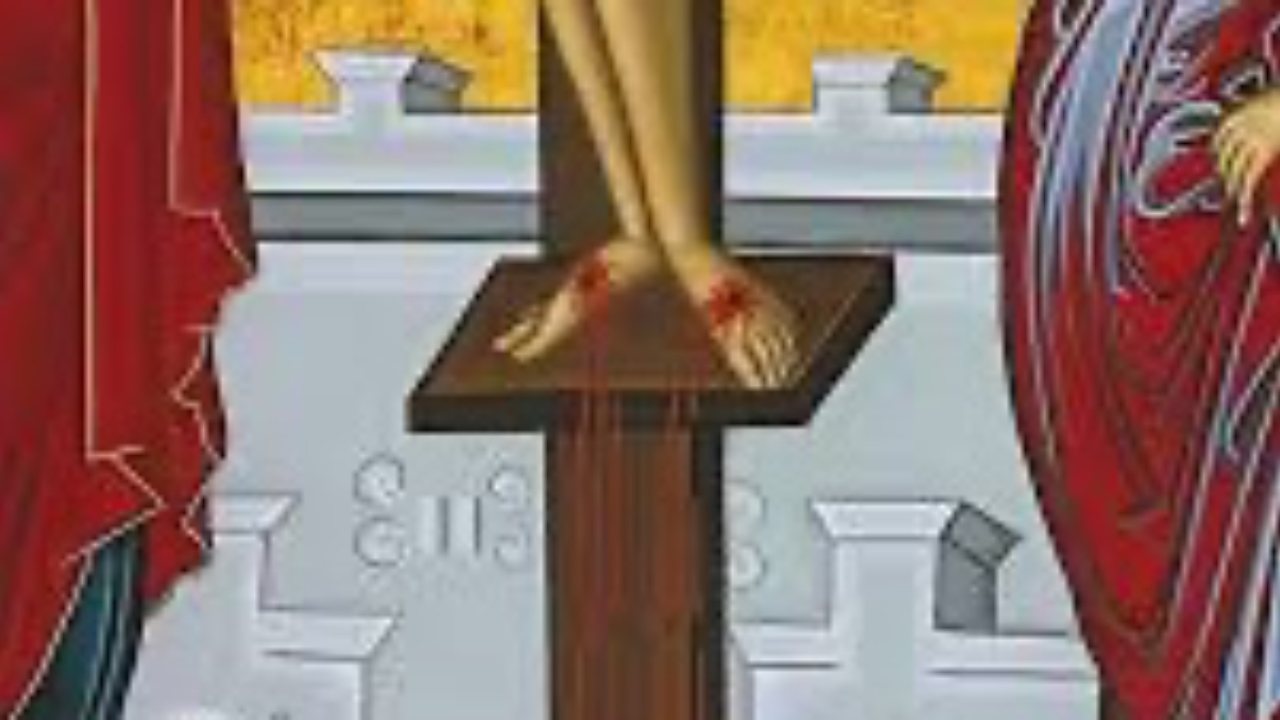When can Jesus “put up His feet”?
Aug 24, 2025
Is a Messiah’s work ever done? When can Jesus “put up His feet”?
Psalm 110 says God will put the enemies of the Messiah under a footstool, and it always struck me as odd. It's an unusual word, "footstool," not one in common everyday speech. What does it mean, and why is it used?
"The Lord said to my Lord, sit at my right hand until I make your enemies a footstool." Jesus quoted this Psalm in Matthew 22, Mark 12, and Luke 20. What does he mean by "footstool"?
As I was thinking about the Fifth Sorrow of Mary (standing at the foot of the cross), and Jesus' feet being nailed to a wooden block, I wondered, could that wooden block be what the psalmist is referring to?
I looked for other Psalms that use the word "footstool." There are two others, Psalm 99:5 and Psalm 132:7, and here's what's interesting: both are referring to worship. Both tell us to worship at God's footstool.
Where else are we to worship that could be referred to as a footstool if not the foot of the cross? When I think about things this way, it seems unlikely that the psalmist is referring to anything other than standing at the foot of the cross. And in that way, it seems very likely that the psalmist is predicting that worshipping God in the Messianic Age and the sacrifice on Calvary are one and the same.
When I think about the crucifixion, I think of Jesus' scourging, the crown of thorns, carrying the cross, nails in his hands, and the spear in his side, but rarely the pain of a nail through his feet. I can't imagine how painful that must have been. Maybe I don't think about it because it's too painful to imagine. A nail through a hand is painful, but relatable. A nail through the foot, bearing the weight of a human body, seems more painful than any other aspect of crucifixion.
When I shared my thoughts about Calvary and the footstool with my wife, she immediately said, "Oh, it's suffering, isn't it?" I didn't know what she meant at first. She continued, "That's how Christ triumphs. That's how God puts the enemies under his feet: through suffering."
If suffering is the path Christ took to conquer sin, then it must be a powerful force for good.
Suffering isn't fun, but suffering is the universal human experience. We all suffer. Everybody suffers. But suffering can be good. Suffering can be redemptive. Suffering is our path to sanctification.
Accepting suffering may be the greatest good we can do.
Reflecting on the Seven Sorrows of Mary is a great way to get perspective on suffering. It's a great way to offer consolation to others. It's a great way to see Mary practice virtue, so that we can model her virtues and overcome sin. Join me in saying the seven sorrows rosary every day!

